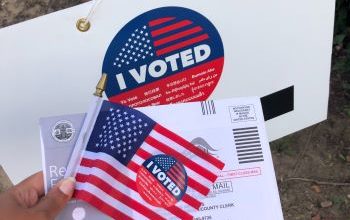US Senate Committee Convenes to Discuss Cuban Civil Society
By Anastasya Lloyd-Damnjanovic
Washington — Assistant Secretary of State Roberta Jacobson affirmed U.S. support for Cuba’s expanding civil society and “the right of the Cuban people to freely determine their own future” in testimony before the Senate Foreign Relations Committee June 7. The hearing, which included testimonies by Cuban dissidents delivered in-person and via video chat, examined the development of civil society in the island nation.
“To Cuba and other governments across the hemisphere, our message must be clear: nonviolent dissent is not criminal behavior,” Jacobson said.
The State Department works to strengthen Cuban civil society by engaging with pro-democracy and human rights activists, Jacobson explained, and by enhancing civilian access to communication technologies.
Noting the efficacy of the Obama administration’s policies on Cuban travel, remittances, and people-to-people exchanges, Jacobson emphasized the importance of bringing Cubans together to coordinate activism and develop a strong civil society. In 2011, the Obama administration introduced new policies that allowed more flights to the island nation, enabled American citizens to transfer up to $500 in remittances per quarter, and reinstituted embargo exemptions for Americans traveling there for religious, humanitarian, or academic reasons.
“As Secretary Clinton has stated, societies move forward when groups of citizens work together peacefully to transform common interests into common actions that serve the common good,” she said.
To this end, a variety of U.S. programs in Cuba enable the free flow of information between the island’s citizens and the outside world, promote the documentation of human rights abuses and offer humanitarian assistance to political prisoners and their families.
The United States has also recognized notable activist efforts, such as the dissident blogging of Cuban Yoani Sanchez, who received a State Department 2011 International Women of Courage award for her courage and leadership.
As the activists involved in the recent Arab Spring movements in the Middle East and North Africa have demonstrated, technology can contribute to political change and strengthen civil society when used effectively. To that end, the United States sponsors a series of specialized programs to provide free Internet access to Cuban activists, train independent journalists and foster basic technological literacy among the citizenry.
The 2008 legalization of cellular phones in Cuba, for example, represented a positive development for civil society because it enabled citizens to use social media sites and text messaging to report human rights abuses. Since 2008, cellphone usage in Cuba has doubled.
Faith-based organizations acting independently of the State Department have also managed to effect positive change in Cuba, providing social services to struggling Cubans through charitable outreach programs, Jacobson said.
However, Jacobson suggested that many challenges to the fledgling civil society in Cuba remain. The Cuban government has persisted in limiting fundamental freedoms, arbitrarily imprisoning its own citizens and hindering the efforts of human rights activists, she said. Beyond Cuba, the regimes of some countries in the Western Hemisphere have reacted to activist efforts, utilizing new techniques to limit citizen activism. Because of this continuing repression, the United States will steadfastly support the development of a robust civil society in Cuba and elsewhere, she said.
“Wherever it occurs in our hemisphere, we need to confront these new measures to limit freedom of expression,” Jacobson said.
The hearing was chaired by Senator Robert Menendez, a Democrat from New Jersey, who recognized the recent growth of civil society on the island.
“I am encouraged by the tremendous growth of civil society and thousands of brave Cubans who every day stand their ground despite harassment, the loss of jobs and rations as retribution for their actions, and their ultimate — in many cases their ultimate freedom, and for those who speak their minds, despite recurrent physical abuse and arbitrary arrests and detentions,” he said.
However, Menendez expressed concern over the recent actions of the Cuban regime.
“At the same time, those arrests and detentions this year alone are now more than 2,400. And that includes 1,158 documented arrests just in the month of March, a level not seen in Cuba since the 1960s.”
Cuban journalist and ex-political prisoner Normando Hernández González, who spoke through a Spanish interpreter at the hearing via video chat, agreed that civil society was flourishing but also warned of remaining obstacles.
“Today Cuban civil society finds itself in the face of dynamic and pluralist growth, evermore conscious that citizens have inalienable rights that the state must respect. [But] repression of civil society activities increases every day,” Hernández said.
He concluded by asking the committee members to “please show solidarity with the growing and genuine Cuban civil society and condemn all levels of repression that take place in Cuba.”
“I encourage you to seek other democratic governments and parliamentarians from around the world, multilateral institutions and international [nongovernmental organizations] to support the true Cuba,” Hernández added.
Prior to Jacobson’s testimony, committee member Senator Marco Rubio, a Republican lawmaker from Florida who is Cuban American, gave opening remarks that highlighted the importance of ensuring Internet access for the Cuban public and holding human rights abusers aligned with the Cuban regime responsible for their actions. He also emphasized the United States’ commitment to supporting the efforts of the Cuban people to determine their own political future.
“Our goal here as the United States and as people who care deeply about human rights all over the world is that the people of Cuba have freedom, the freedom to choose any economic model they want, but the freedom to choose their leaders so they could have any economic model they want,” Rubio said.

